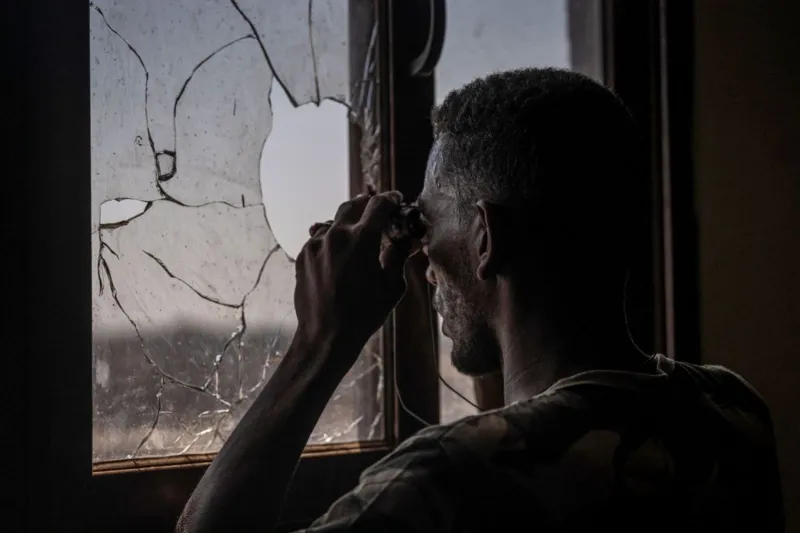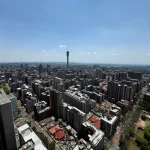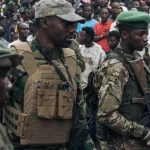Residents of Sudan’s capital Khartoum say the army has recaptured large parts of the city from RSF paramilitaries, marking its biggest victory in a year.
“Shrapnel and stray ammunition are falling on my neighbourhood,” a doctor we are calling Mustafatells the BBC. “The clashes these days are heavy”.
Key sites recaptured by the army this week include the mint – where money is printed.
At the time of writing, the RSF still controls most of Khartoum proper. Whereas the army now holds the majority of territory across the wider tripartite capital – meaning Omdurman, Bahri and Khartoum.
But, after winning back near total control of the crucial state of Gezira, the army believes it now has the momentum to take the capital too, and break the RSF’s almost two-year siege.
“Very soon there will be no rebels in Khartoum,” announced army leader and de facto ruler Gen Abdel Fattah al-Burhan on Tuesday.
An end to this conflict cannot come fast enough.
Aid workers say people are starving across the country as a result of the war – in Khartoum alone more than 100,000 people are suffering from famine, according to UN-backed researchers.
Since war broke out almost two years ago between Gen Burhan and his deputy-turned-rival Mohamed Hamdan “Hemedti” Dagalo who leads the RSF, 12 million people have been forced from their homes and tens of thousands of civilians have been butchered.
Sudan is the world’s worst humanitarian crisis, agree international aid agencies.
They say both the army and the RSF are guilty of committing some of the gravest atrocities imaginable against innocent civilians, including that the RSF has carried out a genocide in Darfur.
Both forces deny the accusations.
The army has been jubilantly welcomed by many inhabitants of the areas it has recently recaptured, as the RSF has been widely accused of killing and raping civilians in Khartoum, as well as looting the homes of the many residents who have fled the city.
Reports of the army’s advance have been dismissed by the RSF as “lies and rumours”. They have made similar denials ahead of every retreat in recent weeks.
Analysts say the army’s recent successes have been the result of enlisting more fighters and buying more weaponry. Winning back the besieged army headquarters was also a huge boon earlier this month.
The army’s expulsion of the paramilitary group from the central city of Wad Madani in January was marred by allegations of summary executions and arbitrary retribution attacks on those perceived to be RSF informants or collaborators.
This will no doubt raise fears among some Khartoum residents that the same fate awaits them.
“When you open social media and you see all the killing, if you’ve committed something wrong you must be worried,” Mustafa told the BBC.
“Some of them led fighters to people’s homes. Others joined [the RSF] and stole property, terrorised people – even held women against their will [as sex slaves]. They did horrible things.
“Are they terrified of what is to come? Of course.”
But sometimes there is a fine line between being seen as a collaborator, and the reality of survival in war.
“I am worried for my cousin,” says Amir, who lives in Khartoum’s twin city of Omdurman, which lies just across the River Nile.
“He is not a collaborator or an informant – he often has to deal with these people [the RSF] because he’s looking after his mother and his kids. Will he be slaughtered [by the army] or will he be left alone?”
For now, as the army approaches and Sudan’s future hands in the balance, all that Mustafa and Amir can do is wait.
Some names have been changed in this report for reasons of safety














